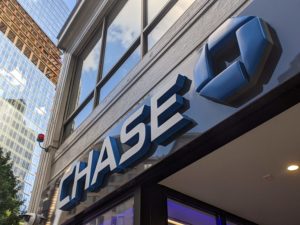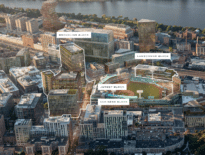JPMorgan’s second-quarter profits rose by 67 percent as the nation’s largest bank made more loans to customers, took advantage of higher interest rates, and got a boost from its recent acquisition of First Republic Bank.
The bank earned $14.5 billion in the three months ended June 30, compared with $8.65 billion in the same period last year. On a per share basis, the bank earned $4.75, easily outpacing Wall Street expectations for $3.97, according to a survey of analysts by FactSet.
Revenue rose to $42.4 billion, from $31.6 billion a year ago.
JPMorgan Chase & Co. has been one of the benefactors of the banking crisis that came after the failure of Silicon Valley Bank, Signature Bank and First Republic Bank. The bank saw billions of dollars of deposits flow into its vaults, mostly from well-to-do customers, and was able to buy First Republic Bank after it failed.
In the deal, JPMorgan acquired 84 First Republic branches, bringing it $92 billion in deposits and $203 billion in loans and other securities. First Republic’s rich clientele is currently being integrated into JPMorgan’s private bank and wealth management businesses. Since the transaction closed, First Republic deposits totaled $6 billion, suggesting “strong client retention,” JPMorgan said.
Net income attributable to First Republic was $2.4 billion in the quarter, which included a gain estimated at $2.7 billion, JPMorgan said. The bank also set aside $1.2 billion to cover bad loans in the First Republic portfolio.
Net interest income in the period was $21.9 billion, up 44 percent over the same period last year, or 38 percent not including the First Republic transaction.
JPMorgan raised its outlook for net interest income for the year to $87 billion from its previous forecast of $81 billion as the amount of money it collected on loans rose faster than what it paid out on deposits. Beyond this year, the bank expects a decline in net interest income as competition for deposits forces it to pay higher interest to depositors.
Executives also cited “significant uncertainty” with regard to the broader economy, including interest rates, which have risen rapidly over the past year as the Federal Reserve cranked up its benchmark rate in an effort to quell four-decade high inflation.
Most economists expect the Fed to raise rates at least another quarter-point this year. The Fed’s next two-day policy meeting begins July 25.
JPMorgan’s community and consumer banking division also had a strong quarter with revenue of $17.2 billion, up 37 percent from last year’s $12.6 billion.
Shares of JPMorgan rose about 1.8 percent in early trading Friday.
Separately, Citigroup said second-quarter profit fell 36 percent from a year ago, mostly due to a slowdown in its investment banking division. Citi earned $1.33 per share compared with $2.19 per share a year earlier. The result still topped Wall Street’s forecast for profit of $1.31 per share.
Citi shares fell 1.5 percent.




 |
| 


